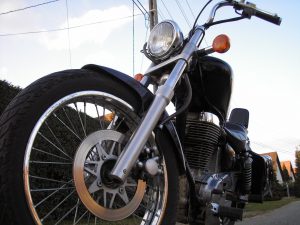The Kentucky Supreme Court recently considered the personal injury lawsuit of a man who was seriously injured in a motorcycle accident when he encountered a large, downed tree in the roadway.
Plaintiff suffered serious personal injuries and sought compensation from the county’s engineer and public works director, arguing these individuals owed a duty of care to maintain the roads in reasonably safe condition, and were negligent in failing to remove the tree or warn motorists about the danger. Defendants filed a motion for qualified official immunity in their individual capacities, which the trial court granted for the public works director, but not for the county engineer. An appellate court later affirmed this decision, citing the state statute that specifically states a county engineer is responsible to remove trees or other obstacles from public roads when the road debris is a hazard to traffic. (Defendant argued he wasn’t aware of the statute and it was the county’s public work’s maintenance department that was responsible for tree removal). With qualified immunity protection not available for defendant, the case went to trial and lasted eight days. Defendant testified he was never responsible for tree removal and his team didn’t have equipment to do so, as it had always been the job of the public works department.
After all evidence was presented, defendant sought a directed judgment, which was denied, but the jury returned a unanimous verdict in favor of defendant, concluding plaintiff hadn’t proven by a preponderance of the evidence that the engineer failed to comply with his statutory duty.
The state appeals court reversed and remanded the case for a new trial, opining the jury’s findings were against the weight of the evidence. The appeals court ruled plaintiff was entitled to a new trial, but not a directed verdict. The road debris case then went to the state supreme court, which reversed in part and affirmed in part. The plaintiff did not deserve a new trial, the state high court said, as the findings were not against the weight of the evidence, but the court agreed there should be no directed verdict.
As our Fort Myers car accident attorneys know, road debris can be extremely dangerous, and determining who is liable when it causes injurious crashes may not be a simple matter. If the debris is from a nearby property, it’s possible the property owner could be liable to compensate those who crash as a result. If the debris fell off a truck or was otherwise improperly secured to another vehicle, the driver of that vehicle, the owner of that vehicle and possibly the employer of that driver could all be held liable – if they can be identified. Often the culprit is long gone by the time the debris is discovered. It can be worth querying local businesses to see whether surveillance video may have captured the identity of the negligent driver.
In cases where the debris has existed on the road for a sufficient period of time or where government officials have received a report of it, the local agency can also be held liable, though as this case shows, they can be more complicated than they appear at first blush. Having an experienced accident attorney on your side is imperative.
Call Associates and Bruce L. Scheiner, Attorneys for the Injured, at 1-800-646-1210.
Additional Resources:
Storm v. Martin, Dec. 14, 2017, Kentucky Supreme Court
More Blog Entries:
When Property Owners Can be Liable for Crashes, Nov. 25, 2017, Fort Myers Motorcycle Accident Lawyer Blog
 Florida Injury Lawyer Blog
Florida Injury Lawyer Blog





